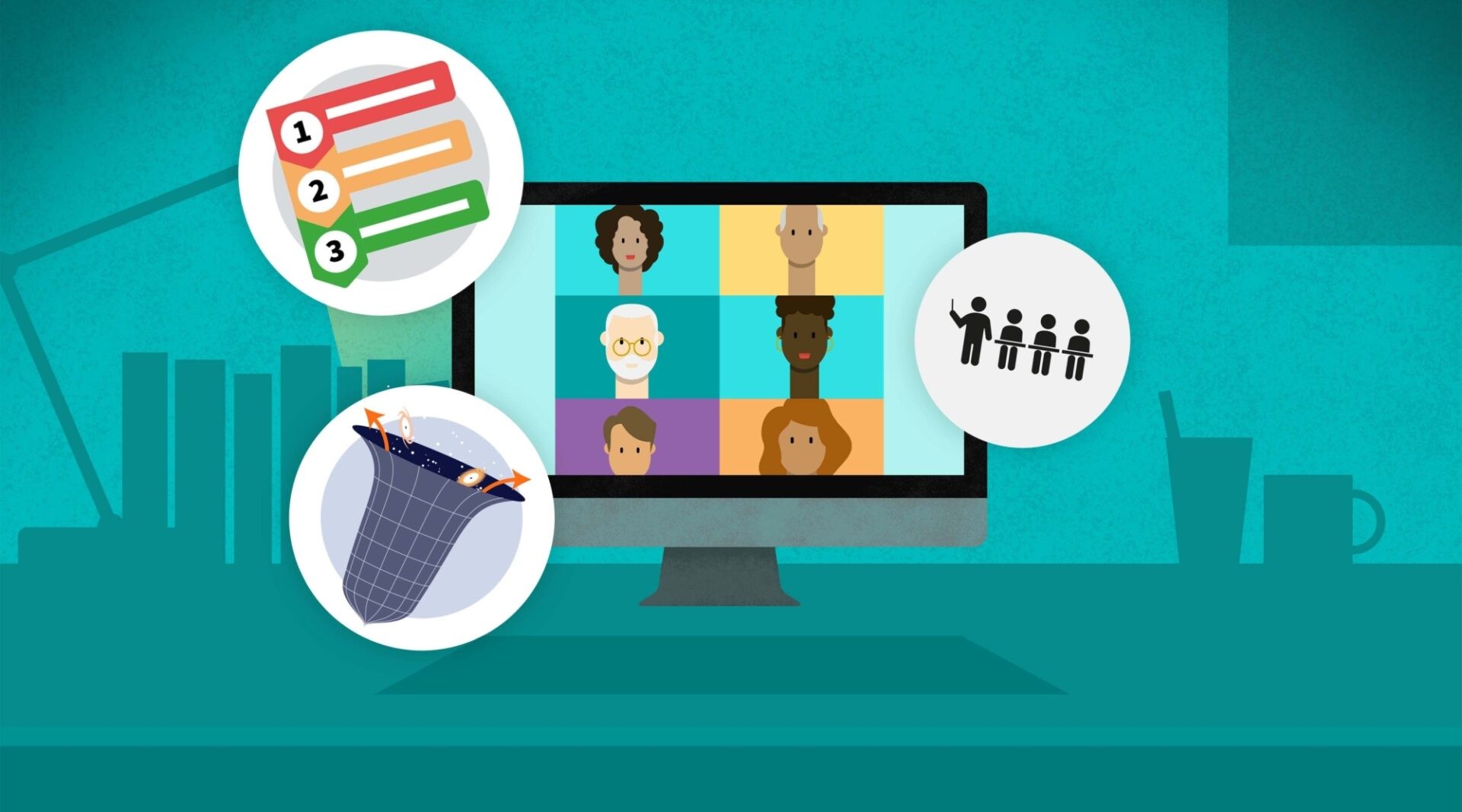Teachers Explore Rubin Investigations
The Rubin education team hit the ground running in 2023 with a series of professional workshops for teachers featuring our newest classroom investigation, Expanding Universe, available in English and Spanish.
In January the education team held three virtual workshops for teachers in Chile and Brazil—the first ones we’ve done in Latin America! The first workshop was part of a weeklong course given by the International Centre for Theoretical Physics-South American Institute for Fundamental Research (ICTP-SAIFR) in São Paolo, Brazil. Rubin educators presented in English, but they had assistance translating materials into Portuguese and Spanish (thanks to the Perimeter Institute of Canada for providing financial support for this). During the workshop, the group discovered that Google Chrome can auto-translate about 90% of the investigation, so many teachers were able to use the investigations in Portuguese. The teachers who attended were excited and enthusiastic about using Rubin investigations to incorporate real astronomy data in their classrooms.
The education team hosted two additional workshops in late January at the Universidad de Conception’s virtual Summer School in Chile. These were conducted in Spanish and a total of 111 teachers participated. After the workshops, teachers filled out evaluation forms, praising the investigation’s “interactive nature,” “simple, direct writing,” and how “it’s not necessary to use or download a program, it is easy to access.”
We plan to offer many more of these professional development opportunities—keep an eye on our calendar to find out about upcoming opportunities in the US, Chile, and other places too. In the meantime, we encourage teachers to explore all the resources and support materials in the Education section of our website. These FAQs are a great place to start!

